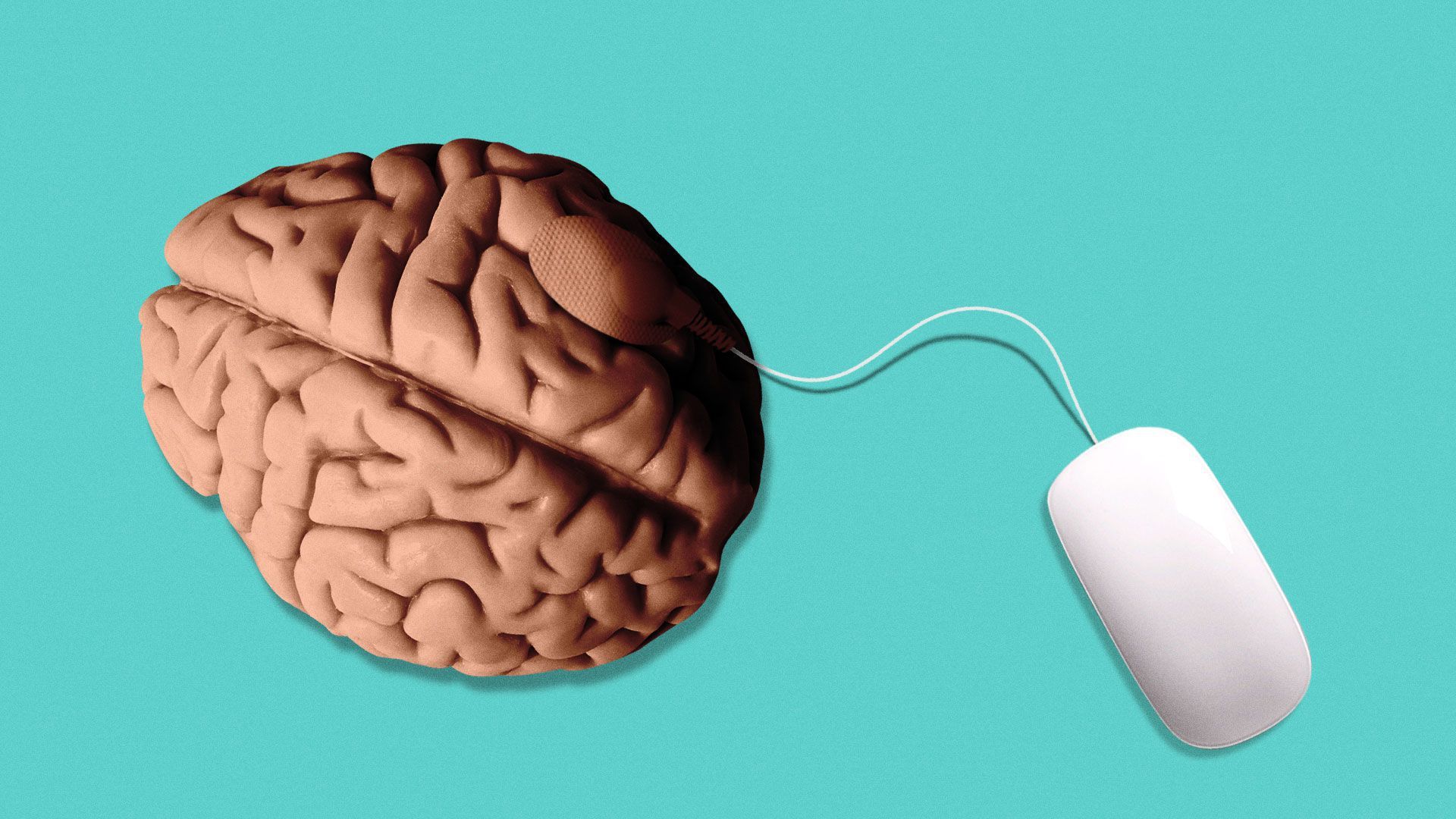Depressed About Trump Either Way? Then Let Elon Musk Manipulate Your Brain a Bit
 |
Illustration: Eniola Odetunde/Axios
|
Elon Musk gave the world a progress update on his brain-machine interface startup Neuralink, showcasing a small implant that can read and transmit the neural activity of a pig, Axios Future editor Bryan Walsh writes.
Why it matters: The Neuralink implant still has yet to be tested in human beings, but it's part of a wave of brain-machine interface technologies that aim to address neurological diseases and injuries, and eventually directly link human brains to the internet.
In an online event, Musk showed the Neuralink device — roughly the size of a quarter — implanted in a pig's brain, where it was able to read some neural signals in real time.
Today some version of neural implants are already used by tens of thousands of people around the world, mostly to treat neurological disorders like epilepsy and Parkinson's.
The catch: For any of the more ambitious uses of BCI to become a reality, scientists will need to figure out how to implant connections in the brain that can last for a decade or longer. Most current versions corrode in a few years.
|
Comments